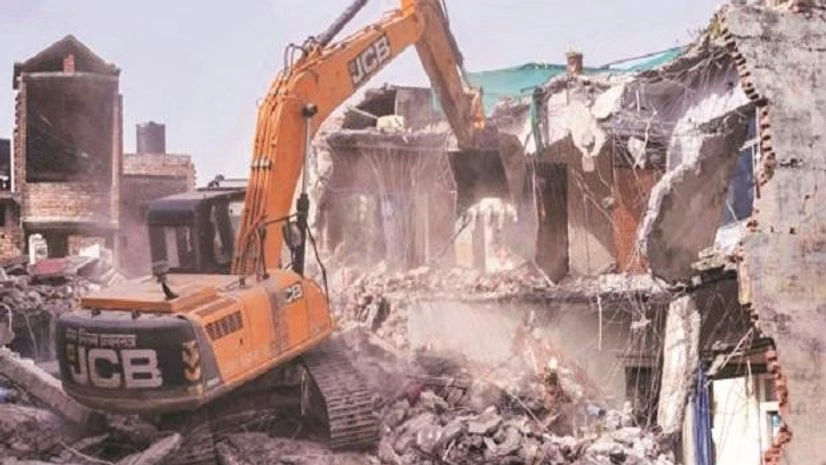The Supreme Court took a strong position on the bulldozer actions on Wednesday, asserting that the executive branch cannot act as a judge and override the judiciary, emphasising that “the legal process should not prejudge the guilt of an accused”.
The court was hearing petitions requesting to stop the ‘bulldozer’ actions against the accused as a corrective measure.
During the proceedings, the court said that the executive cannot assume the role of a decision-maker, emphasising that the arbitrary demolition of a citizen’s home based solely on accusations violates constitutional principles and the separation of powers.
“No one can be held guilty without a fair trial,” the top court remarked, reinforcing the legal protections afforded to all individuals, whether accused or convicted.
The court cautioned that any overreach by the executive in such matters undermines fundamental legal principles. It further noted that officials must be held accountable for actions that go beyond their authority. Such arbitrary acts, particularly in the absence of a judicial order, threaten the rule of law.
“Officials cannot act in such an arbitrary manner,” the apex court said, highlighting that criminal law contains safeguards to protect even those accused or convicted of crimes from potential abuse of power.
More From This Section
In situations where the rights of the accused are violated due to arbitrary actions or negligence, the top court suggested that compensation might be an appropriate remedy. “If only one person is accused of a crime, how can authorities be allowed to remove shelter from the heads of the entire family or a few families?” the court questioned.
“Officials cannot be spared if acting in abuse of power,” the SC concluded, reaffirming the necessity of accountability to prevent the misuse of authority. The ruling was announced by a bench of justices BR Gavai and KV Vishwanathan.
SC on bulldozer action: Key directives
Key directives include providing a 15-day advance notice, recording the demolition process on video, and displaying the spot report publicly, among other actions. However, these guidelines do not apply if the unauthorised structure is located on a public road, railway track, or water body, or if a court has ordered the demolition, as clarified by the Supreme Court.
-Demolition will not occur without prior notice to the owner, which must also be visibly posted on the structure
-A show cause notice must be issued 15 days ahead of time
-An auto-generated email must be sent to the Collector/District Magistrate immediately upon issuance of the notice to prevent any backdating
-All District Magistrates must create official email IDs
-The notice should clearly state the reason for demolition and the scheduled hearing date
-Within three months, a digital portal must be developed to display the notice details and the date it was publicly posted near the structure
-A personal hearing must be scheduled, where the owner’s submissions will be recorded
-The hearing must determine if the offense is compoundable or if partial demolition is feasible
-The order must explain why demolition is the necessary step
-The order will not take effect for 15 days after receipt, allowing the owner/occupier time to remove the unauthorised construction
-Only unauthorised structures that cannot be regularised will be demolished
-A detailed spot report should be prepared, and a video recording of the demolition process, including police and officials present, must be made
-The report must be uploaded to the portal
-Non-compliance with these directives may result in prosecution for contempt or other legal actions
-Officials involved will be held accountable for the restoration of property if these guidelines are not followed
SC on bulldozer action: October 1 ruling
In its earlier ruling on October 1, the Supreme Court issued an interim order directing authorities to halt demolition activities until further notice, except demolitions targeting unauthorised constructions, including religious structures obstructing public pathways. The court underscored that ‘public safety’ is of utmost importance and that structures like temples, dargahs, or gurdwaras blocking public roads should not be allowed.
During the hearings, the top court made it clear that the mere accusation or conviction of an individual does not justify bulldozer demolitions of their homes or businesses. “We are a secular country... Whatever we lay down... we lay down for all citizens. There cannot be a particular law for a particular religion,” Justice Gavai remarked, adding that unauthorised structures should be dealt with in a consistent manner, regardless of the religious community they belong to.
Acknowledging the variation in municipal and local laws, the court expressed concern over the possible misuse of these regulations for punitive purposes. In considering nationwide guidelines, the justices suggested creating an online portal to improve public awareness regarding property rights and demolition procedures.

)